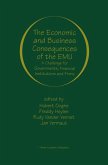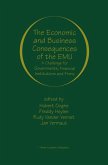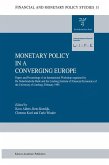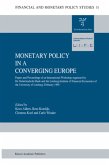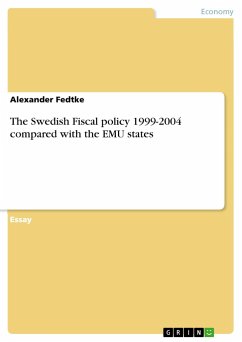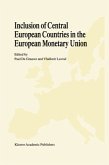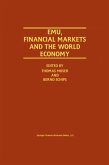EMU - A Swedish Perspective provides a comprehensive and up-to-date survey of the EMU project. The main advantages and disadvantages of a single currency are evaluated. A key feature of the analysis is the attempt to integrate economic and political aspects. The book is a revised version of the report by the Swedish Government Commission on the EMU. Although the analysis focuses on the consequences for Sweden of joining versus not joining the monetary union, it is highly relevant for the discussion in all EU countries.
The book provides an in-depth analysis of how the demands on economic policy will be affected by the monetary union. Various chapters discuss monetary policy and inflation, fiscal policy, unemployment and labour markets, the transition to monetary union, and the exchange-rate arrangements between participants and non-participants. Other chapters analyse the importance of the EMU for European political integration, democratic aspects, and how membership in the monetary union will affect the possibilities for an individual member state to exert influence within the EU.
EMU - A Swedish Perspective should be of interest to professional economists and political scientists, students, and all others who want to form an opinion about the monetary union on the basis of a balanced assessment of the consequences. EMU - A Swedish Perspective provides a comprehensive and up-to-date survey of the EMU project. The main advantages and disadvantages of a single currency are evaluated. A key feature of the analysis is the attempt to integrate economic and political aspects. The book is a revised version of the report by the Swedish Government Commission on the EMU. Although the analysis focuses on the consequences for Sweden of joining versus not joining the monetary union, it is highly relevant for the discussion in all EU countries.
The book provides an in-depth analysis of how the demands on economic policy will be affected by the monetary union. Various chapters discuss monetary policy and inflation, fiscal policy, unemployment and labour markets, the transition to monetary union, and the exchange-rate arrangements between participants and non-participants. Other chapters analyse the importance of the EMU for European political integration, democratic aspects, and how membership in the monetary union will affect the possibilities for an individual member state to exert influence within the EU.
EMU - A Swedish Perspective should be of interest to professional economists and political scientists, students, and all others who want to form an opinion about the monetary union on the basis of a balanced assessment of the consequences. EMU - A Swedish Perspective provides a comprehensive and up-to-date survey of the EMU project. The main advantages and disadvantages of a single currency are evaluated. A key feature of the analysis is the attempt to integrate economic and political aspects. The book is a revised version of the report by the Swedish Government Commission on the EMU. Although the analysis focuses on the consequences for Sweden of joining versus not joining the monetary union, it is highly relevant for the discussion in all EU countries.


